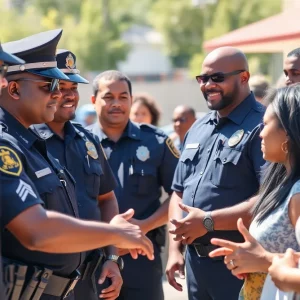Charleston Coast Guard Rescues Four from Sinking Boat
On a sunny Tuesday morning off the beautiful coast of Charleston, South Carolina, a potentially dangerous situation was averted thanks to the quick actions of the U.S. Coast Guard. Crew members responded to an emergency call from a 36-foot vessel that was rapidly taking on water around 30 miles out at sea.
Timely Response
As the boat began to fill with water, the operator used VHF channel 16, which is the emergency frequency for maritime communication, to alert the U.S. Coast Guard Sector Charleston watchstanders. The distress call was received loud and clear, prompting immediate action.
Rescue units were swiftly dispatched and reached the scene with remarkable efficiency. Thankfully, all four individuals aboard the vessel were safe, thanks in part to their calmness and the effective communication with the Coast Guard. It’s moments like these that highlight the importance of knowing how to contact the Coast Guard when in distress.
A Special Aerial Support
In addition to the rescue crews on boats, the U.S. Coast Guard Air Station Savannah joined the effort. They provided aerial coverage that allowed for a comprehensive view of the situation. Having eyes in the sky is crucial during emergencies, as it helps to coordinate ground efforts more effectively, ensuring that everyone remains safe and accounted for.
As the rescue operation unfolded, Coast Guard personnel worked tirelessly to assist with dewatering efforts. They were able to get the situation under control while escorting the slowly sinking vessel to a marina in Rockville. Their professionalism and readiness to help made all the difference, providing hope and safety to those on board.
Advice for Boaters
This incident is a gentle reminder for all boating enthusiasts to be prepared and informed. Here are a few handy tips to keep in mind when heading out to sea:
- Always have communication equipment: Whether it’s a phone or marine radio, knowing how to reach someone in an emergency can save lives.
- Check the weather: Before setting sail, always glance over the weather forecast. Storms can sneak up quickly on the water.
- Have a safety plan: Make sure everyone on the boat knows what to do in case an emergency occurs.
- Keep a life jacket on board: Everyone should have access to a personal floatation device to enhance safety.
Conclusion
Thanks to the quick thinking and professional response from the U.S. Coast Guard, a potentially disastrous situation ended well without harm to any of the four people on board the sinking vessel. Sharing this experience is valuable not only for those who enjoy the sea but also for anyone planning future adventures on the water. Being informed and prepared can make all the difference when it comes to personal safety and enjoyment.
As cool breezes roll through and boats dot the horizon, let’s remember the fantastic work our local heroes do to keep us safe every single day. Here’s to many more safe and fun adventures on the water!
























